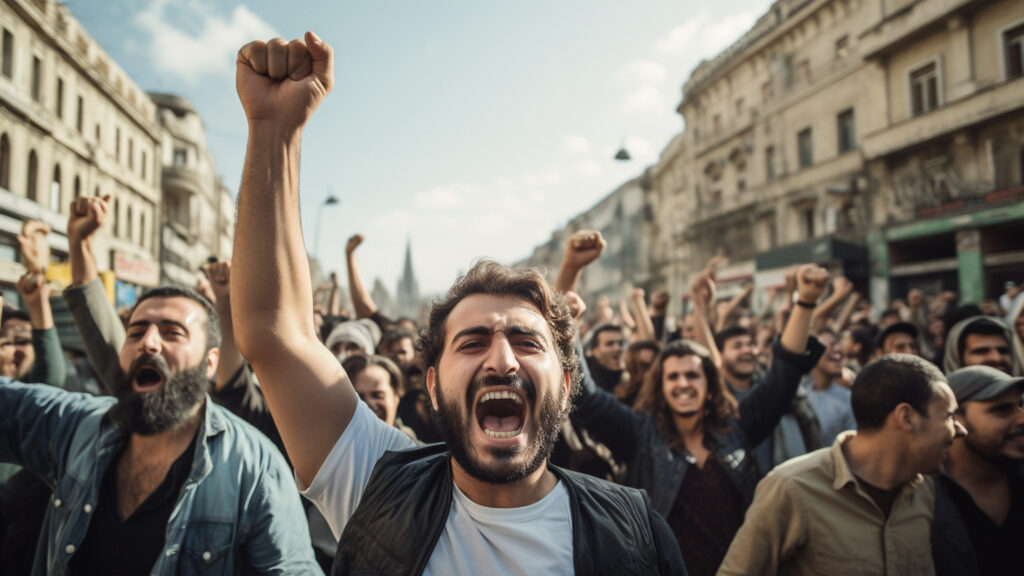Tottering: Civil Order, Security, Peace
Will Israel achieve its goal of dismantling Hamas? Tricky and unclear at this point. What is clear is the position Israel is in: Israel is at a significant political disadvantage.
Egypt and Qatar, both negotiating for hostage releases, are pushing for a continuance of a cease fire. It can be assumed that the Biden administration will support this goal, predicts Daniel Henninger in the WSJ.
In short, Hamas’s planners and fighters look likely to survive without personal accountability for the 1,200 killed on Oct. 7. Instead, the burden will fall on Israel to assent to talks with Hamas, whose goal remains removing the rest of Israel’s more than nine million people.
Mr. Henninger gives due credit to Hamas, along with its partner Palestinian Islamic Jihad, “for figuring out the utility of modern sensibilities, especially in the U.S.”
Initially the world was shocked that Hamas kidnapped young children and pregnant or elderly women.
Hamas understood that the unprecedented horror of its Oct. 7 attack would melt away amid daily media attention to the unbearable horror of these vulnerable hostages and the realities of war inside Gaza.
Responding to the second horror has forced Israel’s army to stand down, possibly putting other Israelis at mortal peril from attacks by Hamas and Hezbollah.
Israel’s goal is to dismantle Hamas. But how when the current standoff gives Hamas the incentive to hold remaining hostages indefinitely?
Complicating the situation are anti-Israel, pro-Palestinian demonstrations like those in New York City the past week.
Protesters glued themselves to Sixth Avenue, blocking the Macy’s Thanksgiving Day Parade. Hours later, they vandalized the facade of the New York Public Library’s main building, doing an estimated $75,000 of damage. Their next move was demanding access to the Museum of Natural History and burning an Israeli flag while shouting that the police officers protecting the museum were equal to the “KKK.” Disrupting the Wednesday evening lighting of the Rockefeller Center Christmas tree was next in line. A social media posts said, “Bring your flags, signs & keffiyehs, mobilization, not celebration!”
Maintaining Order, Dormant
The U.S. has arrived at familiar crossroads, warns Mr. Henninger, using New York as an illustration.
Amid a growing atmosphere of civil disorder, much of it organized, we can either stand back and live with it or push back, deciding that the potential price to our own security eventually could be too high.
The police detained some of the rampaging pro-Palestine protesters, but there’s little prospect of Manhattan’s progressive District Attorney Alvin Bragg prosecuting them. After the city’s George Floyd protests (including store lootings), which ran almost daily for weeks, state Attorney General Letitia James filed a lawsuit—against the New York City Police Department for mishandling activists.
Right now, cops and demonstrators, not to mention store-smashing thieves, know the previous structure for maintaining order is dormant.
Relearning Deterrence
“Deterrence,” notes Henninger, is a bow to the dangers of accommodating disorder.
• The Netanyahu government’s accommodation of Hamas in Gaza was a deterrence failure.
• Communist China’s military expansiveness is a deterrence failure, as are the attacks by Iran’s proxies on U.S. forces and Russia’s invasion of Ukraine.
• Virulent antisemitism on U.S. campuses is a deterrence failure.
• The border is a deterrence failure. So is urban crime. It adds up.
As an entry point for discussion on how to avoid calamity, a simple proposal: Start doing the opposite. Relearn deterrence.






